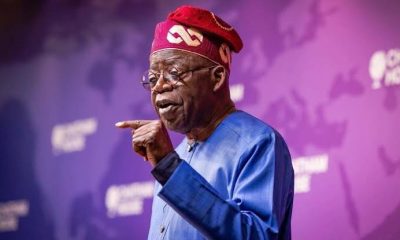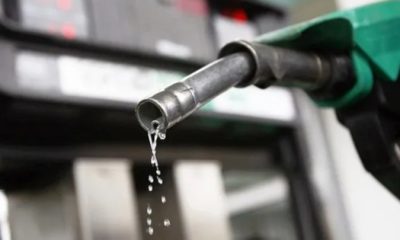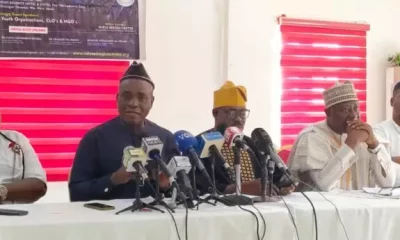Foreign
Kenya reinstates small fuel subsidy in government U-turn
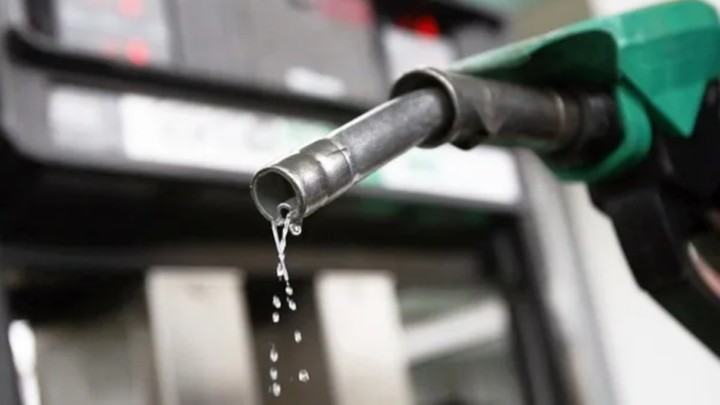
Kenya’s energy regulator announced that the country had reinstated a small subsidy to stabilise retail fuel prices for the next 30 days.
The regulator, known as EPRA, announced late on Monday, a reversal of government policy following public anger over the high cost of living.
In September 2022, President William Ruto removed fuel and maize flour subsidies put in place by his predecessor, saying he preferred subsidising production rather than consumption.
The move was also aimed at cutting government spending as the government seeks to get a handle on debt repayments that have forced it to deny market speculation about a possible default.
However, the subsidy cuts and recent tax hikes have increased living costs and contributed to violent anti-government protests in recent months.
The energy regulator said the maximum retail price of a litre of petrol would remain constant at 194.68 shillings ($1.35), shielding consumers from an increase of 7.33 shillings, which the government will shoulder through a price stabilisation fund.
Daniel Kiptoo, the director general of EPRA, said retail fuel prices are set in the middle of each month adding that the government also applied small subsidies on kerosene and diesel.
Kiptoo said the move did not amount to a reinstatement of the subsidies, since the regulator was using the petroleum development levy to stabilise prices, rather than asking for exchequer support.
“We are basically giving to Kenyans the money that we have collected over the past couple of months,” he told Reuters, referring to the levy, which is charged at the rate of 5.40 shillings per litre of fuel.
Officials from the energy ministry and the finance ministry did not immediately respond to requests for comment.
Fuel prices shot up when Ruto removed the subsidies. They spiked again in July after the government pushed through parliament a contentious law that doubled the fuel tax.
The protests organised in response to that law were called off in July after the opposition and Ruto agreed to talks to resolve their differences, the second such attempt this year.
Foreign
3 teens arrested in Germany for allegedly plotting terror attack
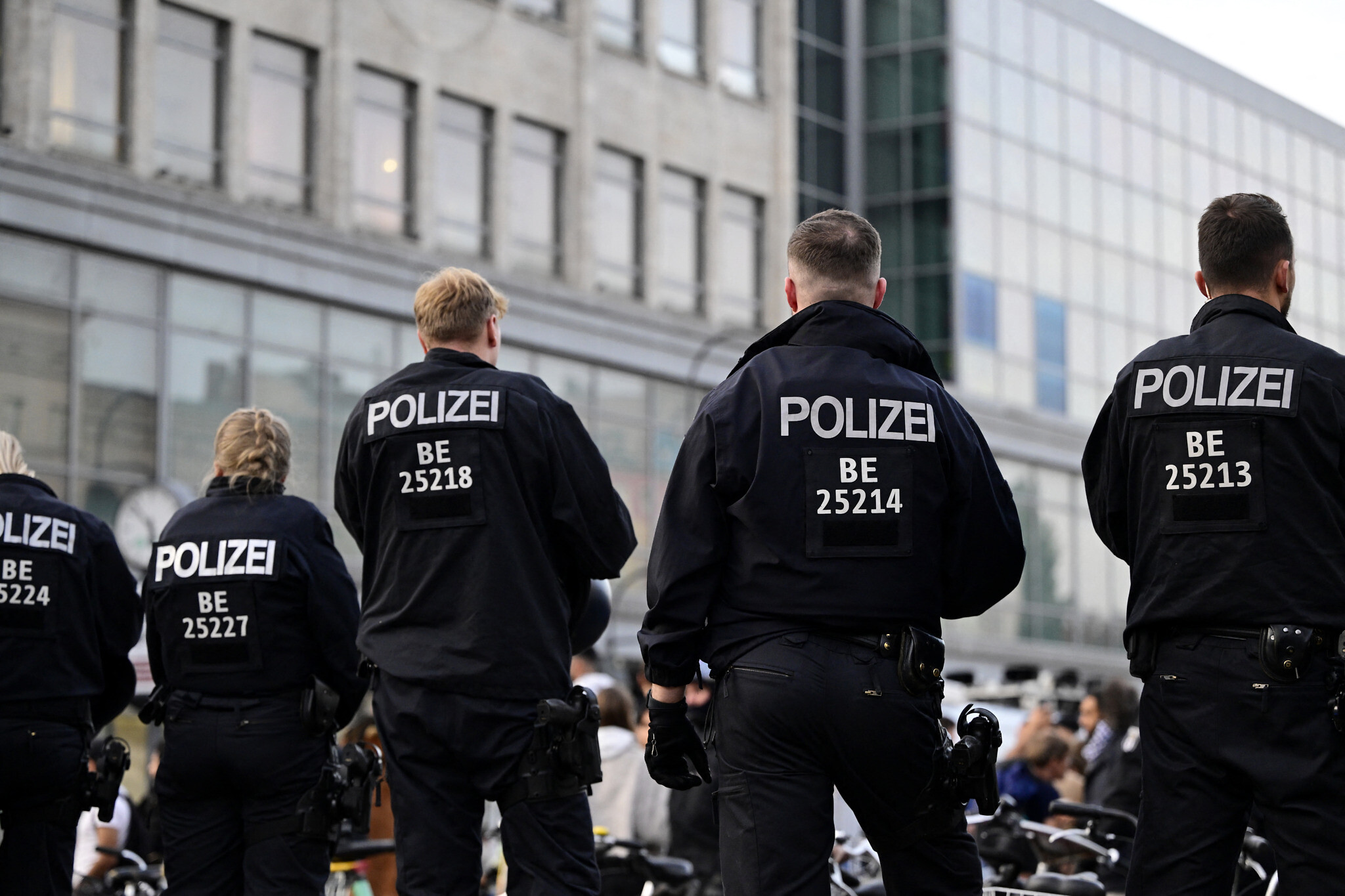
German authorities have arrested three teenagers aged 15 and 16 on suspicion of plotting a deadly Islamist terrorist attack in the western German state of North Rhine-Westphalia, prosecutors said on Friday.
The state’s Central Office for the Prosecution of Terrorism (ZenTer NRW) sought an arrest warrant for the teenagers over the Easter holiday.
They were suspected of plotting a terrorist attack in accordance with the aims and ideology of (extremist militia organisation) Islamic State.
The detained suspects are a 15-year-old girl from Dusseldorf, a 16-year-old girl from the Märkischer Kreis district and a 15-year-old boy from the Soest district, located about 100 kilometres to the east of Dusseldorf.
A fourth suspect has reportedly been identified in the south-western German state of Baden-Württemberg, and the local court there has issued an arrest warrant.
According to the investigators, the teenagers are accused of having agreed to commit murder and manslaughter.
This is in conjunction with the preparation of a serious act of violence endangering the state.
The presumption of innocence applied in all stages of the proceedings.
Security sources told newsmen that the young people had formed a chat group, but had not drawn up a concrete attack plan for a particular time and place.
However, sources said the cities of Dortmund, Dusseldorf and Cologne were discussed as targets, and attacks with knives and Molotov cocktails on people in churches or police officers in police stations had been considered.
The sources said authorities had also conducted searches as part of the investigation.
A machete and a dagger were seized in Dusseldorf, but no evidence of the construction of incendiary devices was discovered.
Sources said the father of the Dusseldorf suspect had already attracted attention from authorities in the past because he had allegedly collected donations for the Islamic State.
The investigators declined to reveal how the suspected terrorists were tracked down, but said that foreign intelligence agencies “did not play a role.”
Foreign
Putin Registers As Candidate For Russia’s Next Presidential Election
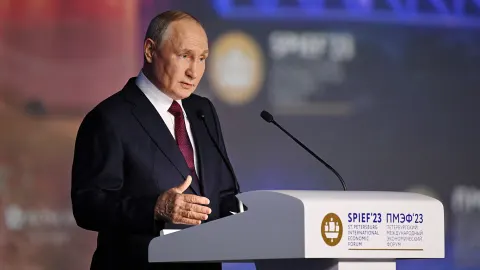
Russia on Monday officially recognised Vladimir Putin as a candidate for the presidential elections in March, a vote that he is all but certain to win.
The 71-year-old has led Russia since the turn of the century, winning four presidential ballots and briefly serving as prime minister in a system where opposition has become virtually non-existent.
The Central Election Commission said it had registered Putin, who nominated himself, as well as right-wing firebrand and Putin-loyalist Leonid Slutsky as candidates for the vote.
The election will be held over a three-day period from March 15 to 17, a move that Kremlin critics have argued makes guaranteeing transparency more difficult.
Following a controversial constitutional reform in 2020, Putin could stay in power until at least 2036.
Rights groups say that previous elections have been marred by irregularities and that independent observers are likely to be barred from monitoring the vote.
While Putin is not expected to face any real competition, liberal challenger Boris Nadezhdin has passed the threshold of signatures to be registered as a candidate.
However, it is still unclear if he will be allowed to run, and the Kremlin has said it does not consider him to be a serious rival.

